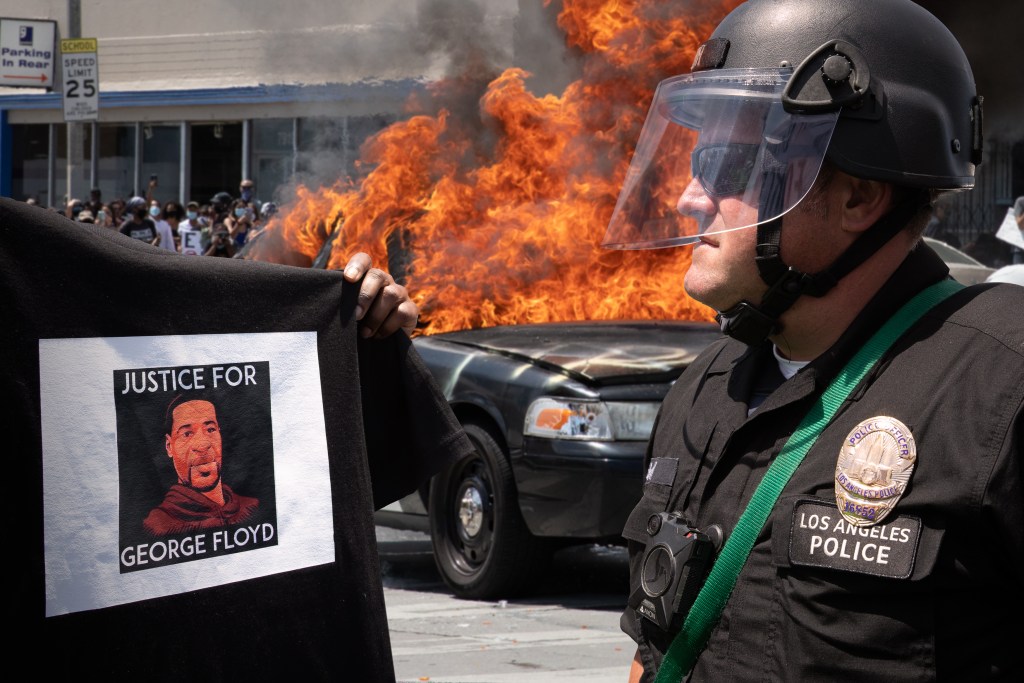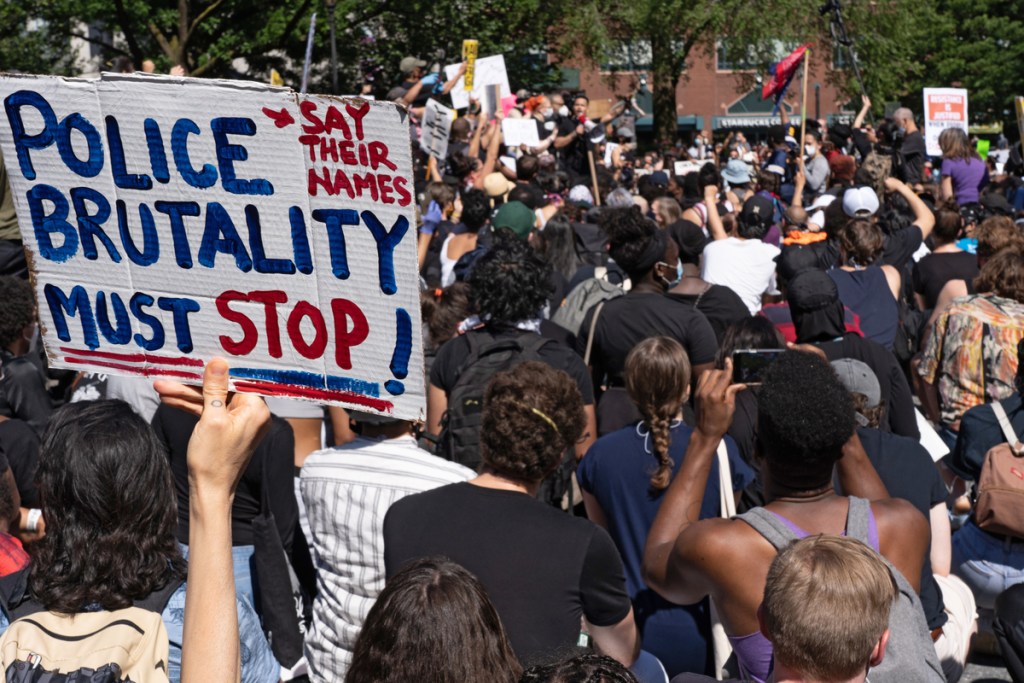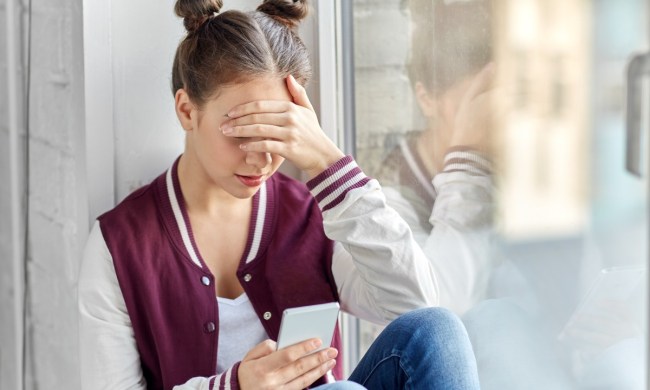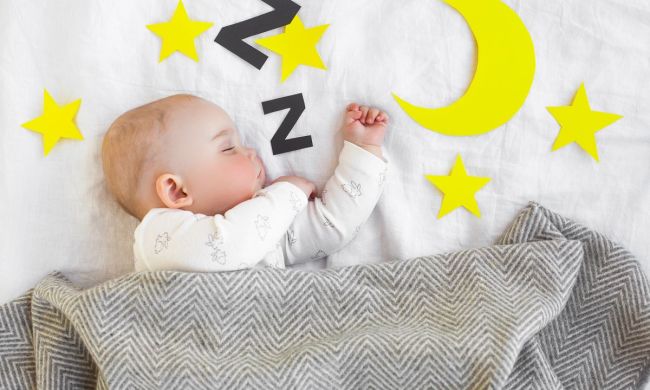For generations of children, police were among “the people in your neighborhood, the people that you meet each day,” to quote the classic “Sesame Street” song that helped orient preschoolers to the world around them. In-school visits and picture books, such as Richard Scarry’s “A Day at the Police Station” reinforced the police officer’s standing as a friendly symbol of authority dedicated to protecting and serving their community.
That image has been tarnished by recent tragedies in which mostly unarmed people of color lost their lives in encounters with the police. The trial of Derek Chauvin in the death of George Floyd ,and the resulting guilty verdict, galvanized the nation. Parents need to be prepared to answer their children’s questions about police violence and the role of law enforcement.
- Don’t avoid the conversation
- Be open and honest
- Allow children to raise the topic themselves
- Be pro-active
- Talk about the role of police officers
- For young children: Embrace the questions; emphasize security
- For teenagers: Think it forward
- Don’t weaponize the police
- Keep your own emotions and biases in check
- Be open and honest, part two
- Online tools
Every household is unique, and the questions and answers in these conversations will no doubt be informed by age, race, and ethnicity. For children in certain communities untouched by police violence, “It can be a shock to witness what we’ve seen over the past year,” said Dr. Rhea Boyd, a pediatrician and child health advocate in the Bay Area. “Prominent events of police violence have raised the public consciousness around these issues, and we are now having a national conversation.”
A conversation about police violence will no doubt have different focuses in the households of families of color. Dr. Emily Mudd, PhD, a pediatric psychologist at the Cleveland Clinic, said, “For parents of children of color, especially for parents of black boys, there is definitely a heightened sense of urgency around these conversations. In white households, there is the privilege of choosing if and when to have this conversation with your children. White families may teach their children this well-intentioned message of, ‘All people are treated equally’ (regardless of the color of their skin), but that is not really the message children of color are receiving. I think it’s important that all families have conversations with their children about social injustice, racism, and police brutality.”
To encourage family conversations and open communication, NewFolks reached out to child care advocates and a school resource police officer about what parents should consider in discussing the police and police violence with their families.
Here are some of their recommendations.
Don’t avoid the conversation
“Don’t discourage your kids from talking about what they’ve seen,” Dr. Mudd said. “Allow them to talk about their concerns about what they’ve seen on TV or heard about from their friends. It’s important that kids know they can come to their parents, and encouraging that is important. Plus, it’s a good way for parents to understand where their children are in processing and dealing with (these incidents) and how they are affecting them.”

Be open and honest
“This conversation may look different for different aged children and teenagers,” said Dr. Alyssa Cohen, a Fellow in Pediatric Health Services and Population Health Research at the Ann & Robert H. Lurie Children’s Hospital in Chicago. “But by going into it openly and inviting children to share what they know or feel, you’re creating a very important space to help them process those emotions. Even if you don’t have all the answers, it’s an opportunity to work with their children to think about those answers, and what they can do moving forward to help their communities.”
Allow children to raise the topic themselves
“Kids as young as kindergarten-age want to know what other people are talking about and what it means,” Dr. Boyd said. “The George Floyd case was broadly reported. Parents can use their child’s curiosity as a way to open up the conversation. Questions such as, ‘What do you know about this?’ ‘How does it make you feel?’ and ‘Do you have concerns about this?’ are a way to start with what the child says they know. Parents can then fill in age-appropriate details.”
Be pro-active
“It’s important to keep in mind your child’s age, their development, or where they may be getting information,” Dr. Cohen said. “You may have the opportunity to protect younger children from watching some of the footage that’s been shared, whereas for older children and teens, it may be they’ve already seen some of the footage (on their screens). That’s an important place where parents can be thoughtful in trying to watch these things as a family so they can unpack them together. The only way to find out is to have that proactive conversation.”
Talk about the role of police officers
“The news makes it sound like police officers use their weapons every day,” Amy Hyndman, a Highland Park, Illinois police officer and school resource officer for pre-K through eighth-grade students in North Shore School District 112, states. “It’s important for parents to explain to kids that the majority of police officer can go their entire career, 20-30 years and never have to pull out their weapon. Every day, a student asks me about my gun. Middle schoolers find that fascinating. They ask if I have ever shot anybody. Fortunately, I’m able to tell them that I have not. The majority of officers go to work every day dedicated to helping and protecting their community. Parents should give basic definitions of what a law is and why we have rules in society, giving kids specific examples of how police help the community, such as responding to traffic accidents and trying to get things that have been stolen.”
For young children: Embrace the questions; emphasize security
“There are generations of people, particularly white people, who perhaps grew up looking up to the police and never imagining that police violence, something this generation of children has come to witness and learn about, exists or is systemic,” Dr. Boyd said. “It is important for parents to allow that complicated relationship to exist. The most important thing for parents is to ensure their children feel secure. Parents should let kids know that their parents or direct caregivers are doing everything in their power to keep their kids safe. It makes kids feel secure if they know their teachers, their pediatrician, their extended family are the ones keeping them safe and parents can talk about what they do to do that.”
Dr. Mudd offers similar advice. “If a child shares fears that a police officer is going to shoot them,” she said. “The first way to approach is to ask them why. Once parents can better understand where that fear is coming from, they’re better equipped to address it. If it’s because your child goes to a school where there is a police officer who has spoken to them in a way that makes them feel afraid, parents need to know that. It is more likely that their fear is related to something they’ve seen and they worry it will happen to them. Then it’s for parents to talk about all the environments in which their teachers, babysitters, grandparents or other caregivers all make sure they’re safe.”
For teenagers: Think it forward
“Teenagers are looking for validation in their feelings,” Dr. Cohen said. “They may be seeking support in processing those feelings. One thing I’ve learned from them is that they’re such amazing critical thinkers, and by inviting them to share what they know and feel (about the news regarding police violence), parents have an opportunity to set a great kind of space for open discussion and help foster that critical thinking about what can change in the world and explore outlets where teens can work positively to affect change.”

Don’t weaponize the police
Parents must walk a fine line between addressing incidents of police violence, but in a way that doesn’t make their children scared of the police or undermine law enforcement’s role in the community. When director Alfred Hitchcock was about 4 or 5-years-old, his father sent him to the local police station with a note. The policeman on duty locked him in a cell and said, “This is what we do to naughty boys,” thus instilling in Hitchcock a lifelong anxiety about the police. According to Hyndman, “It drives me crazy” when parents ask her to come to the house to scare their misbehaving child. “My role is to build a relationship with children so they know that I’m a resource and not somebody to be afraid of, and if they see me in their school, they can come up to me anytime and tell me about an issue they are having. Parents need to remind their kids that we are there to help.”
Keep your own emotions and biases in check
“Parents have an opportunity to share what they may be feeling in a way that is age-appropriate for their child,” Dr. Cohen said. “They can validate their children’s feelings by sharing that they may be feeling something similar.”
“Before starting any conversation with children, start with how you’re feeling,” Dr. Mudd advised. “If you’re really upset, it’s okay to share that with your child and acknowledge that you don’t have the answers. That’s okay, too.”
Be open and honest, part two
“Every family will come to a conversation about policing from their own personal experiences whether they be positive or negative,” Hyndman says. “Parents should explain to older kids that police officers respond to emergency situations with information that is rapidly evolving, and listening to what the police officer is telling you to do is really important. If parents have kids who are driving, remind them they want to roll down all their windows (if they are stopped) and to keep their hands on the steering wheel. Listening to what an officer has to say is important, even if you may disagree. There are systems in place for you to submit a complaint later. In the moment, an officer has limited information and they are trying to gain control of a situation.”
But perhaps most important, Hyndman says, is that “police officers are not superheroes. They are human beings. They are parents. I go to work every day committed to helping my community. But I have a family I come home to. I think people forget that part sometimes. The majority of police officers are doing their job correctly and with good intentions.
Online tools
• Healthy Children: The American Academy of Pediatrics parenting website
• EmbraceRace.org
• Know Your Rights (ACLU)




